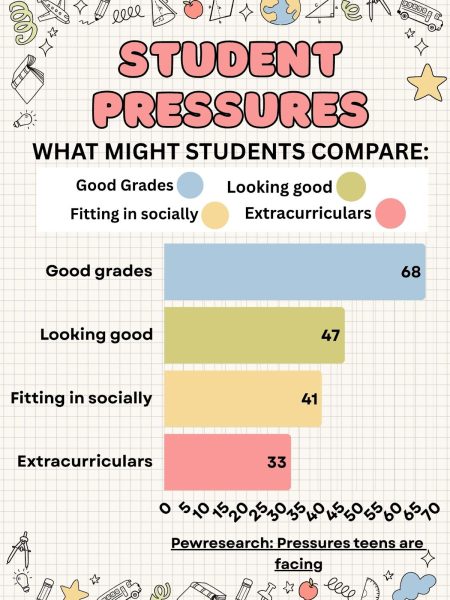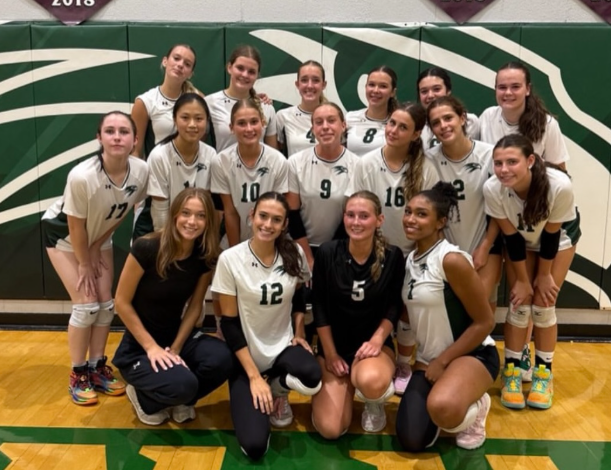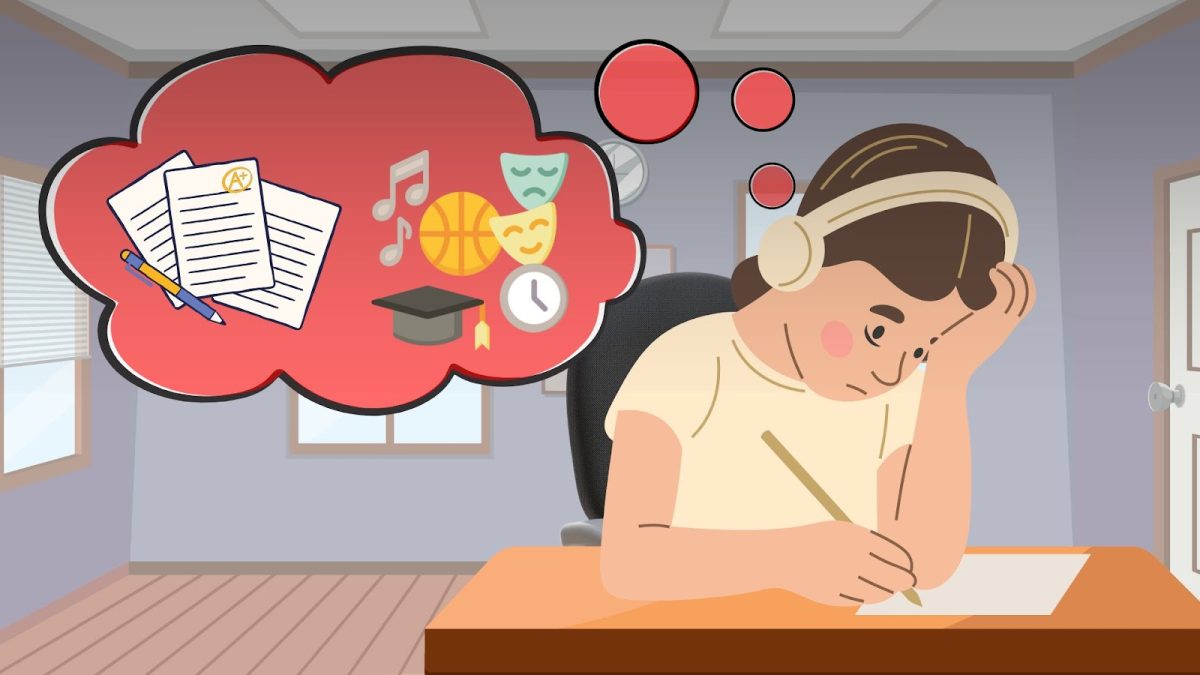“After getting my grades back, the first thing people ask, especially in Green Hope, is, ‘How did you do?’ or ‘What did you get?’”
Getting asked seemingly simple questions like these is the reality for students at Green Hope, including Saanvi Ram (‘27). Students ask these questions almost daily in order to compare grades with one another.
At Green Hope, students take more Advanced Placement (AP) courses, more rigorous courses and more dual enrollment courses than in other schools nationally. Students constantly try to take harder courses to stand out against their peers, and those that succeed are often looked up to with admiration. When thinking about the type of people that she often compares herself to, Ram feels that, “People who have higher grades, or a higher rank, often appear on a pedestal for me.”
However, according to a study from Yale professor Suniya Luthar, adolescents attending a high achievement school (HAS) are at high risk for various mental health problems, including chronic stress.
Green Hope is one of these schools, and the harmful repercussions of the competitive environment are clear.
Comparisons have very real effects on mental health, something that many high schoolers already struggle with. The World Health Organization reports that one in seven 10-19 year olds experience a mental disorder globally, and suicide is the third leading cause of death among 15-29 year olds.
Ruthless high school atmospheres directly contribute to mental health issues. Students cite grades, homework and preparing for college as some of the most prominent causes of stress in a study done by researchers at the New York University College of Nursing.
Ram believes that academic comparisons are especially harmful to her self-esteem as she struggles to separate herself from others’ achievements. She also feels that comparison creates a lack of intrinsic motivation. “It leads me to believe I’m not good enough, or even if I try my hardest, someone is always going to be better than me.”
Stomach aches, sleep loss and more are also side-effects of excessive comparisons, stemming from the chronic stress that many students experience.
Although many students think that striving for perfection will create higher quality work, it can actually decrease student performance. Always striving for the highest grade can lead to negative consequences on mental health and academic achievement. Consequences can range from burnout and procrastination to high amounts of anxiety. Perfectionists often believe that nothing is ever good enough, leading them to toil for hours on end and still lack satisfaction.
Many students also struggle to separate themselves from their grades, leading to more mental health issues down the road. “I often tie my worth, or my sense of self in my grades,” Ram noted. “It is a difficult thing to cope with and it has such detrimental effects on self worth and how

I perceive myself.”
She further voiced worry that the competitive environment at Green Hope could make it easier to compare herself to peers. “If someone else has more extracurriculars than me, or more AP classes, it often leads to extra comparison.” Teens go to great lengths in order to achieve the highest grades and most impactful activities due to the need to stand out amongst their peers. Competing for singularity fosters a cutthroat undertone in an institution where students should be focused on learning.
Academic comparison does not only happen inside of schools, but also on social media. Creators post college tips and statistics online, creating anxiety-provoking videos that lead adolescents to “doom scroll” on platforms.
Social media makes it easy to spread misinformation online, which leads to widespread social comparison against statistics that are not always reliable. On social media, people only post what they want others to see, meaning that the full story is not always known. Ram knows that, “These people’s lives aren’t actually perfect,” but still believes that, “things like social media just amplify the effects of comparison.”
Large content creators are not the only ones that create the culture of comparison on social media. Peers post images of nonprofits they have started, new board positions or awards they have amassed on social media. All of which can be used for comparison. “There are many things that I, personally, compare myself with; it could be grades, extracurriculars, or just how someone’s life may seem more perfect or polished than mine is.”
Ram takes into account that, “Even if these people are presenting themselves in this way, it may not always reflect how they actually are,” but still acknowledges that this fact, “is the reason why comparison is such an issue.” Although posts from peers or creators may not be fully accurate, the convenience of these posts and stories makes them easy to make comparisons with.
It is natural for people to compare themselves to others. People use comparisons when making judgments, perceptions or even stereotyping. Yet, mindset is crucial when making healthy comparisons. Being able to separate other people’s achievements from self-worth is necessary in order to combat the negative effects comparison can have on mental health. However, Ram believes, “That mindset is super difficult to get into because it’s human nature to feel upset when someone gets something you really wanted.” It can be easy to stay in the cycle of harmful comparisons, but understanding how to move on from them can lead to positive effects in the future.
At the end of the day, being able to understand that what others do does not determine another person’s worth is crucial to overcome the damaging consequences of comparisons. This is something that Ram is still learning. “Honestly, it’s just important to realize that just because they have something I really wanted, it doesn’t take away from me as a person.”













































































